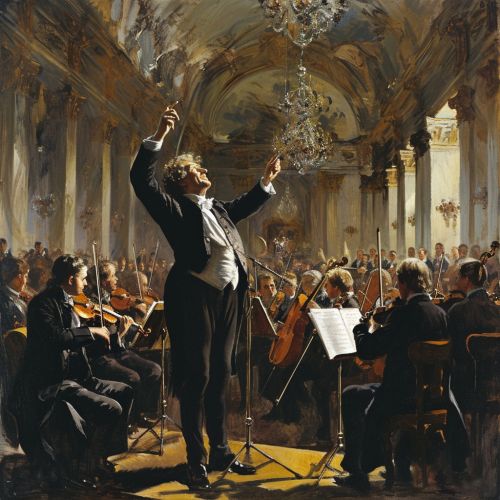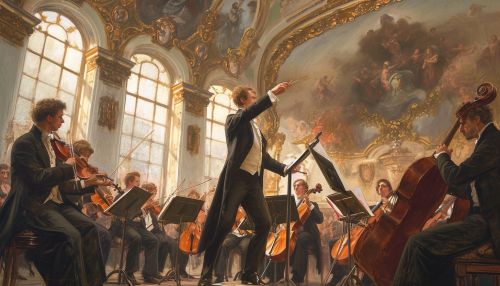Haydn
Early Life
Franz Joseph Haydn was born on March 31, 1732, in the village of Rohrau, near the border of Hungary. His father, Mathias Haydn, was a wheelwright who also served as a Marktrichter, an office akin to village mayor. Haydn's mother Maria, née Koller, had previously worked as a cook in the palace of Count Harrach, the presiding aristocrat of Rohrau. Neither parent could read music; however, Mathias was an enthusiastic folk musician, who taught himself to play the harpsichord by ear.
Musical Education
Haydn's musical abilities were noticed at a young age, leading him to be sent to Hainburg to study music with a relative, Johann Matthias Frankh, a schoolmaster and choirmaster. At the age of eight, Haydn was recruited to sing in the choir at St. Stephen's Cathedral in Vienna, where he went on to learn to play violin and keyboard. During his time in Vienna, Haydn lived in the Kapellhaus next to the cathedral, along with four teachers and about ten other choirboys.
Early Career
Haydn's first position was as a freelance musician in Vienna, where he taught music and played in a string quartet. In 1757, he was appointed Kapellmeister (music director) to Count Morzin and composed his first symphony for the count's orchestra. In 1761, Haydn entered the service of the wealthy Esterházy family, becoming assistant to the elderly Kapellmeister, Gregor Werner. Upon Werner's death in 1766, Haydn was promoted to full Kapellmeister.
Esterházy Service
During his nearly 30 years of service to the Esterházy family, Haydn composed a vast amount of music: symphonies, string quartets, operas, piano sonatas, and more. He was required to produce music for various occasions and to conduct the court orchestra. His isolation from other composers and trends in music until 1790 helped him develop a unique style, now seen as the first fully developed Classical style.


Later Years and Death
In 1790, Haydn left the Esterházy service when his patron, Prince Nikolaus Esterházy, died. He accepted an invitation from Johann Peter Salomon, a German violinist and impresario, to visit England and conduct new symphonies with a large orchestra. The visits to London, often referred to as the London symphonies, were a great success and generated some of Haydn's best-known work. Haydn returned to Vienna in 1795 and took up his former position with the Esterházy family, remaining in their employ until his death in 1809.
Legacy
Haydn's influence on later composers is immense. His contributions to musical form have earned him the epithets "Father of the Symphony" and "Father of the String Quartet". He is also often credited with having a significant role in the development of the piano trio and the evolution of sonata form. A central characteristic of Haydn's music is the development of larger structures out of very short, simple musical motifs, often derived from standard accompanying figures. The music is often quite formally concentrated, and the important musical events of a movement can unfold rather quickly.
